- Home /
- Academy /
- Content & SEO Processes /
- SEO Framework - A Comprehensive Guide to Optimizing Your Website
SEO Framework: A Comprehensive Guide to Optimizing Your Website

The Continuous SEO Framework reflects the fact that SEO is a dynamic field, and no one should rely on the same processes and tools indefinitely.
The only feature-rich SEO plugin that adheres to WordPress and searches engine white-hat guidelines and rules
Begin using tried-and-true methods to optimize your website for SEO. Clean, dedicated, extensible, limitless, ad-free, and without strings attached.
To top it all off, this is the fastest full-featured SEO plugin, and it integrates seamlessly into your WordPress website, leaving you in the dark.
Furthermore, it is always necessary to consider current technology, the relevance of the content, and the authority gained through links.
What is a continuous SEO framework?
The Continuous SEO Framework is characterized by three aspects of SEO:
- Managing change entails keeping track of what is going on.
- Continuously optimize what you already have.
- Expansion: build on what you have.
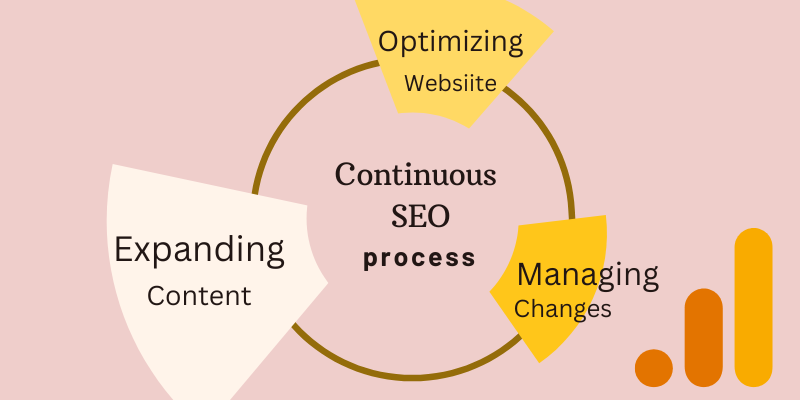
The pillars of SEO are used to group tasks within each dimension. While the SEO pillars should not be used to define the framework, they are useful for grouping tasks within each dimension: Technology: the website's technical foundation, which influences crawling and indexing. Relevance: metadata and content that tells search engines what your website is about. Links to your website that establish your authority and trustworthiness.
The framework's outline is emerging:
Technology:
Were there any technological changes, and if so, were they positive or negative?
Relevance:
Has any of the content changed, and if so, is this a good or bad thing? Did you gain or lose authority and is this good or bad?
Optimizing
- How can technology be used to improve crawling and indexing?
- Relevance: How can existing content be optimized?
- How can existing links be optimized for authority?
Expanding
- What new developments in technology can you take advantage of?
- What new content can you create to be relevant?
- What new outreach can you do as an authority figure?
SEO framework plugins
Unlike other WordPress SEO plugins we've looked at, you can access all the SEO Framework's settings through a single menu called SEO.
Despite being divided into various meta boxes and tabs, it is quite lengthy. However, the user interface contains plenty of hints explaining what everything means. You can rearrange the menu using the arrow symbols. That way, you can place the most important options near the top.
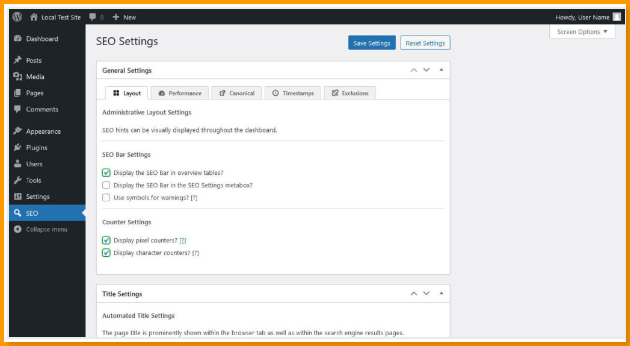
The following are the contents of the various sections:
- General Options include layout options, performance tweaks, and general indexing options.
- Title Settings — This option allows you to customize the structure and content of automatically generated page titles.
- Description Meta Settings — Select whether or not to use automated meta descriptions.
- Homepage Settings — From here, you can control how your homepage appears in search and social networks.
- Social Meta Settings — How your pages appear in social networks and what data is displayed.
- Schema.org Options — Determine whether or not to use Schema.org data and what it should contain.
- Robots Meta Settings — These are the options for the robots.txt file.
- Webmaster Meta Settings — Connect your site to different webmaster tools.
- Sitemap Settings — Configures the content and other settings of your sitemap.
- Feed Settings — Options for anti-scraping your RSS feed.
- The majority of these are fairly standard and similar to previous examples.
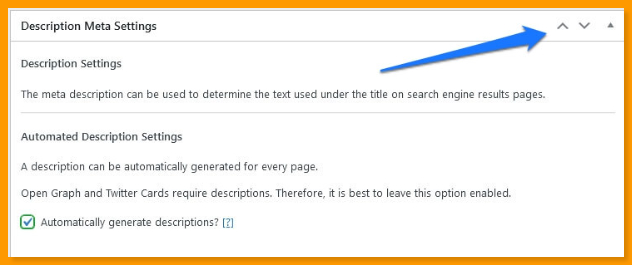
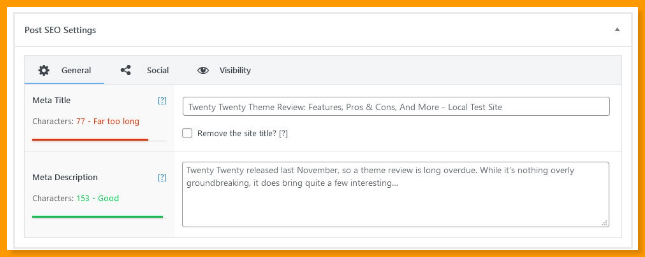
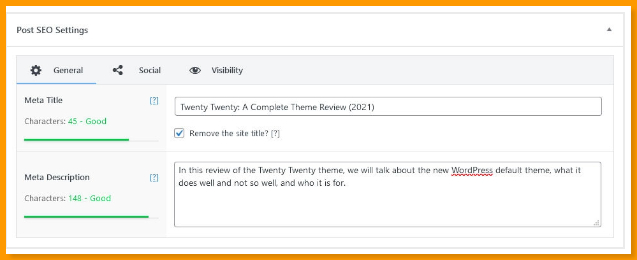
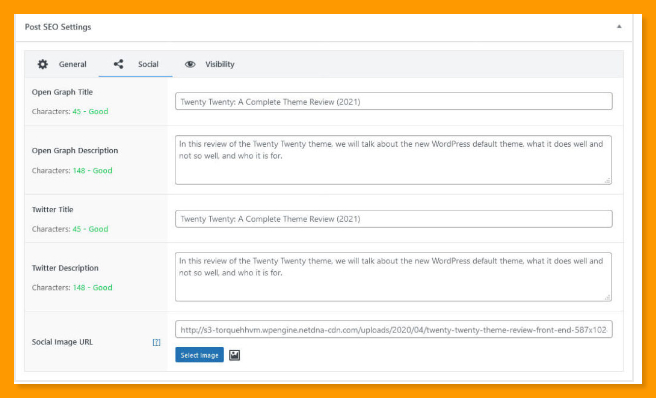
For support, there’s documentation, however, it seems thin. Frequently, I could only find answers to my questions by using the search function and reading the release notes. The SEO Framework takes pride in its active participation in the WordPress support forum. So, swing by there if you have any technical issues.
It is brilliant
The SEO Framework is an SEO expert system. It is the only solution that can generate critical SEO meta tags in any language intelligently by reading your WordPress environment. This automation saves you a significant amount of time, which you could use to create more content or focus on other tasks. It also eliminates the need for advanced SEO expertise.
It comes pre-configured
We provide an excellent starting point for your website with The SEO Framework by rationally optimizing all of your pages. Naturally, you can also tweak it however you like. If you're not an SEO expert, read our Setup guide to find out what optimize.
It leaves no room for errors
We prioritize the quality of features you require over the number of features you do not require. This feature distinguishes this plugin, making it faster, more accurately, nearly bug-free, and more durable. The added benefit is that search engines are unlikely to penalize your site. We won’t steer you into writing unnatural content or allow you to trick search engines.
It is still genuine and pure
The SEO Framework was created for small to large corporations and enterprises. The interface is completely accessible and integrates seamlessly with your dashboard. Interacting with this plugin thus feels natural. It may appear monotonous, but your WordPress dashboard should not serve as a billboard for our brand. This will never change. It boosts search visibility.
The SEO Framework distinguishes your website by enabling breadcrumbs for Google Search and autogenerating titles and descriptions by Google's guidelines. With its built-in sitemap, it also automatically notifies Google, Bing, and all other connected search networks of changes to your website.
It facilitates social sharing
The Open Graph, Facebook, and Twitter Cards protocols are automatically supported and customizable by the SEO Framework. It makes your posts stand out when they're shared on sites like Pinterest, Discord, and Whatsapp.
It feels more than approachable
We handpicked our color scheme so that people with any medically recognized color-vision deficiency can distinguish the search engine guidelines. In addition, we added full keyboard navigation and screen-reader support.
It shields you from errors
The SEO Framework prevents you from making major and common SEO mistakes. It leaves little room for error because the plugin already handles all SEO for you. It, for example, prevents duplicated content errors by enforcing strict canonical rules. It adheres to best practices and goes above and beyond.
The most serious issues with WordPress plugins are security and compatibility. As part-time security researchers, we are working hard to make this plugin impenetrable. The SEO Framework also makes use of WordPress's API allowing this plugin to seamlessly integrate with any other plugin written with that in mind.
It is geared toward developers
We encourage other developers to improve and expand on this plugin's functionality. We've already done this with our extensions. Please explore our API and contribute!
It is considerate of your privacy
The SEO Framework does not send us any information and does not set any cookies. Learn more about our strict privacy policies. Check out our free companion plugin Extension Manager for additional functionality. It offers a variety of free and paid extensions, including:
- Focus walks you through the steps of creating targeted content that ranks for focus keywords and synonyms.
- Articles improve your published posts by adding important Structured Data automatically.
- Honeypot detects comment spammers in four simple but effective ways.
- Cord facilitates the integration of your website with Google Analytics and Facebook Pixel.
- Local allows you to provide important local business information to search engines.
- For AMP-enabled articles and pages, AMP connects The SEO Framework to the AMP plugin.
Monitor tracks the SEO optimizations and statistics for your website. The SEO Framework's development comments are hidden by Incognito. Visitors to attachment pages are redirected to the parent post by Origin. Title Fix ensures that your title output is correct. Even if your theme is doing it incorrectly.
Compatibility between SEO framework
The SEO Framework is compatible with:
- PHP 7.2 or higher is required.
- WordPress 5.5 and up.
- WordPress.org is used for internationalization.
- Character recognition and rendering in Unicode (UTF-8), including Emoji and CJKV (Chinese, Japanese, Korean, Vietnamese).
- Through its interface and metatag generation, it supports Right to Left (RTL) languages (Arabic, Hebrew, Farsi, and others).
- A carefully chosen color scheme allows for complete color-vision deficiency accessibility.
- Full keyboard navigation allows you to inspect tooltips quickly without ever having to reach your mouse.
- Field anchors, ARIA labels, and title attributes provide full screen-reader accessibility.
- This plugin is based on WordPress Multisite installations.
- Robots.txt and sitemap.xml file detection and output
- WordPress Core sitemaps are fully integrated.
- Structured data output using Schema.org JSON-LD scripts.
- Changing oEmbed for better Discord sharing.
- Detection of various other SEO tools to assist you in making a gracious switch.
- WPML, Polylang, WPGlobus, and MultilingualPress are examples of translation plugins.
- WooCommerce and Easy Digital Downloads are two examples of e-commerce plugins.
- Using WordPress's native bulk-and-quick-edit interfaces to edit posts and terms.
- A single constant definition is used to define headless mode.
What are SEO premium subscriptions?
While there is no premium version of The SEO Framework, it does include several optional add-ons. Some of them are free, while others require a premium subscription.
- Focus (paid) — Introduces a panel that analyses your content optimization and provides recommendations for how to improve it. The basic version is completely free. - The premium subscription includes synonyms (English only) and inflections (multiple languages) to help you target your content even better.
- Articles (paid) — Adds structured data to blog posts to distinguish them as news, general, or blog content. This increases your chances of appearing in more prominent search results. The addon also includes a Google News sitemap that will automatically notify the service of changes.
- Honeypot (paid) — Inserts a honeypot into the WordPress comment form to catch auto spam. Reduces the risk of having spammy content on your site, which reduces your SEO value.
- Cord (paid) — Assists in connecting your site to Google Analytics and Facebook Pixel for improved tracking and remarketing.
- Local (paid) — Assistance with local search optimization. Include business information such as your address, opening hours, and so on using Schema.org markup so that it can be found in searches. Supports several business locations.
- Monitor (paid) — Examines your site for common website errors and compares them to your back-end settings to provide tailored recommendations on how to improve it.
- AMP (free) — Configure The SEO Framework to work with Google's Accelerated Mobile Pages. Keep in mind that it requires the official AMP plugin to function.
- Incognito (free) — Removes the plugin's development comments from your site code.
- Origin (free) — Directs visitors and search spiders to posts containing media or media files from media attachment pages. As a result, low-value pages are removed from the search results.
- Title Fix (free) — An extension that fixes the page title output when your theme generates it using an older standard.
The SEO framework's pros and cons
Alright, we now have a bird's-eye view of what the plugin can do. It's time to look at where The SEO Framework excels and where it falls short. What is great! Overall, The SEO Framework appears to be a reliable plugin. It provides you with all of the functionality you need to optimize your site's appearance in search and social media. It also has excellent out-of-the-box settings and can even automate the creation of titles and meta descriptions with good results. The latter will be extremely beneficial, especially for those who are unfamiliar with SEO.
Even though other SEO plugins have similar features, I think the SEO indicators are a nice touch. The SEO Framework manages to cram a lot of information into a small amount of space.
What I also find refreshing is their no-advertisement policy. Other SEO plugins, as we've seen, frequently serve as billboards for their premium offers. The SEO Framework explicitly prohibits this practice, which is a first in a plugin review.
It also means that it works well with the standard WordPress dashboard. However, even WordPress is moving away from this type of stripped-down design (see the Gutenberg editor and Customizer). So a little more flair would be fine. Nonetheless, their accessibility focus is outstanding!
What Could Be Improved?
Concerning the drawbacks, I found the sheer number of options to be a little overwhelming. Some of them are also quite technical, and some of the descriptions are not the most simple to grasp. Without doing more research, I wasn't always sure what each option does or does not do. I can't imagine how it will be for those who have never worked with SEO before. Especially since the documentation could use some improvement.
However, the most significant issue I discovered during my review of The SEO Framework is its premium offers and add-ons. They are presented in an extremely perplexing manner. It's difficult to tell what you get and don't get with and without a subscription. To be honest, I didn't get it until I downloaded and installed the extension manager and saw in the interface what I could and couldn't activate without a license key.
Furthermore, some extensions that I expected to be free from the description were not. They should find a way to make this clearer; it's currently a deterrent.
Furthermore, not all extensions make sense. Some features, such as redirecting visitors from attachment pages to real pages, are built into other SEO plugins by default. I also don't understand why I should pay for a content analysis module that is available for free in other plugins. Perhaps it would be a good idea to make that a default feature while restricting API access to subscribers only. That, at least, would make The SEO Framework more appealing to me.
So, while I like the lean core product and what it does, I'm not completely sold on the environment that surrounds it.
Conclusion:
I had no idea what to expect from the first plugin in this series. I like how it deviates from many of the industry's established practices. It does what it says, is ad-free, has sensible default settings, and has exciting automated features.
Simultaneously, The SEO Framework comes across as a little technical and clunky at times. Search engine optimization has evolved into much more than a set of technical requirements. But that's the overall impression I get from The SEO Framework. It could also benefit from a little more zing, as well as a rethinking of its premium offerings. In short, I believe they have a great core product, but I would need a few more bells and whistles to seriously consider switching.
Start using PagesMeter now!
With PagesMeter, you have everything you need for better website speed monitoring, all in one place.
- Free Sign Up
- No credit card required

Content optimization refers to updating your content (text, images, links, code, and other elements) to help search engine algorithms rank your web pages higher.
Rank tracking is the practice of monitoring the rankings that your sites hold in search results for the search terms that interest you. A program that does rank tracking is called a rank tracker.

Content pruning is the process of taking out the content from the website that has very less value to the business or its clients.
Uncover your website’s SEO potential.
PagesMeter is a single tool that offers everything you need to monitor your website's speed.